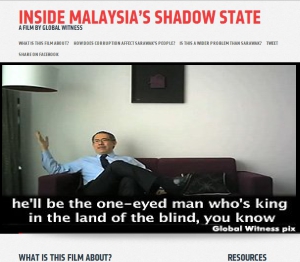 The latest batch of new initiatives under the Taxi Industry Transformation Programme (TITP) approved by the Cabinet recently has again left taxi operators working for companies in the cold.
The latest batch of new initiatives under the Taxi Industry Transformation Programme (TITP) approved by the Cabinet recently has again left taxi operators working for companies in the cold.
According to the Land Public Transport Commission (SPAD) chairman Tan Sri Syed Hamid Albar, taxi drivers oppressed by the current pajak or taxi rental system will be given a way out. In this much ballyhooed new initiative, not only will this – the largest group of taxi drivers in the country – in his statement, get the opportunity to apply for individual taxi licences, some may even be given RM5,000 as seed money to buy their own taxis.
But is this really a new initiative or big deal? And how many taxi drivers can benefit from it?
Taxi drivers and members of the public should be forgiven if they give the thumbs down to this announcement. Three years ago, the same fanfare was given to TEKS1M, a new taxi service that was supposedly aimed at setting new baselines on vehicle standards, driver quality and operating principles.
The launch for TEKS1M took place under “Program Pelancaran Perdana”. Initiated by the Prime Minister Datuk Seri Najib Razak on 24 March 2013, it was announced that 1,000 licenses were to be given to qualified individual taxi drivers in Klang Valley, Penang and Johor Bahru.
The game plan according to the authorities was “to migrate all city taxis into TEKS1M”.
Three years later, it does not appear that any migration has taken place. Instead we get more promises which completely ignore the elephant in the room – company owners getting the lion’s share of licences.
Current data estimates of taxis come from a July 2013 data base, which shows that individually owned licences comprise a minority of the 45,337 licences given out for the budget, airport. premier and executive categories of vehicles. Individual, and more likely, genuinely owner operated vehicles dominate in the category of “hire cars” – 87% of 16,012 vehicles and they are to be found mainly in the small towns.
The majority of licences in the Klang Valley area where the taxi industry is centered, and most profitable, has been handed out to companies. These companies subsequently rent out the vehicles at exploitative rates to drivers who, lacking the necessary political or other cables, cannot get their own licences.
This rentier practice rewarding absentee owners and penalizing what amounts to “tenant operators” has been going on for many years. Its effect has been to place Kuala Lumpur taxi drivers at the top of a list that compares the 10 worst taxi drivers across the globe according to world British taxi comparison site LondonCabs.co.uk.
Anyone who has ever been a passenger in these non-owner operated vehicles plying the roads of Kuala Lumpur will have heard from this category of taxi drivers their justifiably angry tirade aimed at the authorities for their plight of being overworked and underpaid.
One complainant has itemized his costs as:
– RM1.5 – 2K for taxi license
– Daily rental depends on the “Proton” models you choose and ranges from RM50 – 85 daily.
– A day rental free every ten days you “pay on time”
(Some companies one or two days a month, depends)
You have to save money for :
– Puspakom inspection (every half year),
– Health inspection (annually, when you renew your license)
– SPAD license
– Car maintenance
– Changing of tyres
– Vehicle runs on LNG so need to queue up whenever you need to top up (always a very long queue and not every station are 24hrs)
Under these work conditions, it is not surprising to find taxi operators renting company-owned vehicles unable to make a decent livelihood, despite working extraordinarily long hours, and/or having to engage in unethical practices such as over pricing; refusing short rides; meter tampering; etc.
This basic flaw in the issuance of licences to non-owner corporate operators at the expense of the individual taxi operator is the classic case of the government not getting it right about a long standing problem – a simple one – and shooting itself in the foot, if not the head since taxi drivers are in the front line of the exchange of views about politics in the country.
The system that most taxi drivers in the country have been compelled to work with invites from them (and the public) the most cynical interpretation as to why it exists and flourishes. It’s all about cronies and kakis and Umno-putras. Should they be asked their response as to how they rate SPAD’s policy making in the taxi industry, you can be sure that the outcome – in whatever language the survey is conducted – will not be in SPAD’s or the BN government’s favour.
And if SPAD’s management and officials think that the taxi drivers are exaggerating the extent of their suffering, then Syed Hamid and his men should try driving a company owned taxi for a living during one day of their busy schedule. There’s no need to hold endless town hall meetings to meet stakeholders and hear their views. A day as a pajak taxi driver will drive home the harsh reality of the policies they have instituted.
There appears to be one saving grace. According to the SPAD chairman, “What the Government has done is provide flexibility. Once their term (with the rental system) ends, the drivers will be entitled to apply for a new licence,” he said.
In fact, this sounds like more word games and more foot dragging.
Taxi drivers and voters in the Klang Valley area have had enough of the government’s policy of flexibility which has tilted the licensing playing field towards its leaders and supporters among the elite. A policy u turn in the government policy on company ownership of taxi licences which has enriched cronies and impoverished hundreds of thousands of past and present taxi drivers is long overdue.
It also does not require rocket science or expensive consultancy studies to show that a government driven loan programme enabling pajak taxi drivers to own the cars they require for their livelihood is the only way to resolve this long standing public transport issue.
Lim Teck Ghee






















Leave a comment